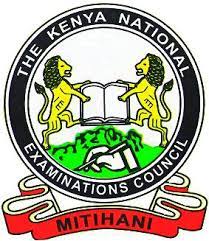
CHAPTER NINE
Office correspondence
They also called mails. mailing which is the process of receiving and sending letters in any organization
Mails may be divided into three parts
- incoming mails
- outgoing mails
- interdepartmental mails
- Incoming mails
Incoming mails section handles all correspondence coming to an organization
The following points provide a general guideline for dealing with incoming mails
Collecting mail
Mails in most cases collected by the messengers
There are fixed times for collection of mails usually in the morning and once in the afternoon
All the mails collected by the messenger should be brought to the office in a locked briefcase to be opened in the mail office
Opening mail
Registered mails must be signed for and dealt with immediately
Mails should be opened at least by two clerks in the presence of a supervisor or other senior official
Open all letters except those marked private, personal or confidential. Those will be opened by those they are addressed to
If a letter states having enclosures, there should be checked and securely affixed to the letters concerned to eliminate possibility of them getting misplaced
Re check envelops for contents before dis carding to make sure that they are really empty
Recording incoming mail
In small departments, amok may be kept to record all incoming mails but record at least all those letters that enclose cash or cheque etc. That are received by registered or forwarding mails to departments steps include
- Read through all the mails and sort into files urgent, important and routine
- Get files for any relevant or previous correspondence and clip letters to files
- Distribute mails as quickly as possible after it has been received and sort out as delays may prove expensive
- Personal and confidential letters should be forward un-opened
- Mails finally are handed over to the boss sorted out e.g. routine, general, important, personal, confidential, registered mail etc.
- Those mails intended for more than one department should be dealt with accordingly
- For very urgent letter of immediate attention ⚠ of several officers, photocopies should be made out of such letters and sent to all of them thereby saving time
- Outgoing mails
Delivering mails to mail office
Clear responsibility as to who would take outgoing mail from various departments to the mail office
There should be fixed timing for delivery of mail to mail office
Places i.e. out-trays should be known where to find letters
Mails should be sent to the mail office open not sealed except the confidential one
If any envelop is to be given special attention e.g to be sent by registered or express mail etc.a suitable note in the pencil should be made at the top of the envelop for guidance of the mail office staff
Preparing mail for dispatch
- All letters received in the mail office should be checked
- Letters should be matched to their correct corresponding envelope
- Letters should be folded and then put in the envelops and sealed
- Some firms use window envelops for outgoing mail to ensure that letters are not put in the wrong envelopes
- They are then weighed for correct postage and the amount noted
- Stamp the letters or parcels. This is done by hand or by the franking machine
Recording outgoing mails
The book records brief details three of the addressee, nature of the document and postage
If is a franking machine is used letters must be delivered to a post office
Registered and express mail should be taken to the post office and proper receipts and acknowledgements obtained
